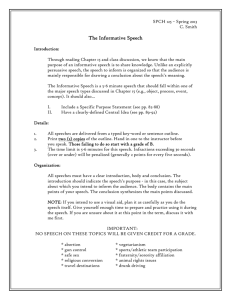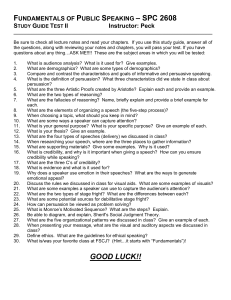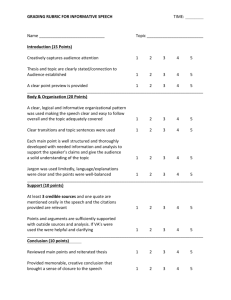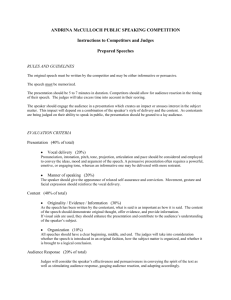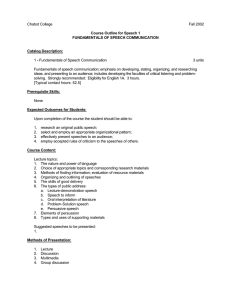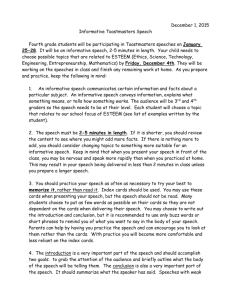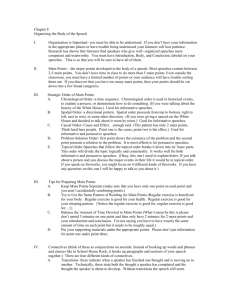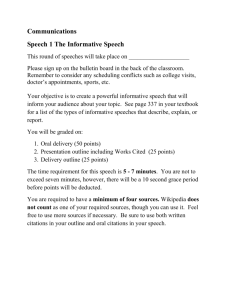Informative Speech Preparation Guide for Students
advertisement
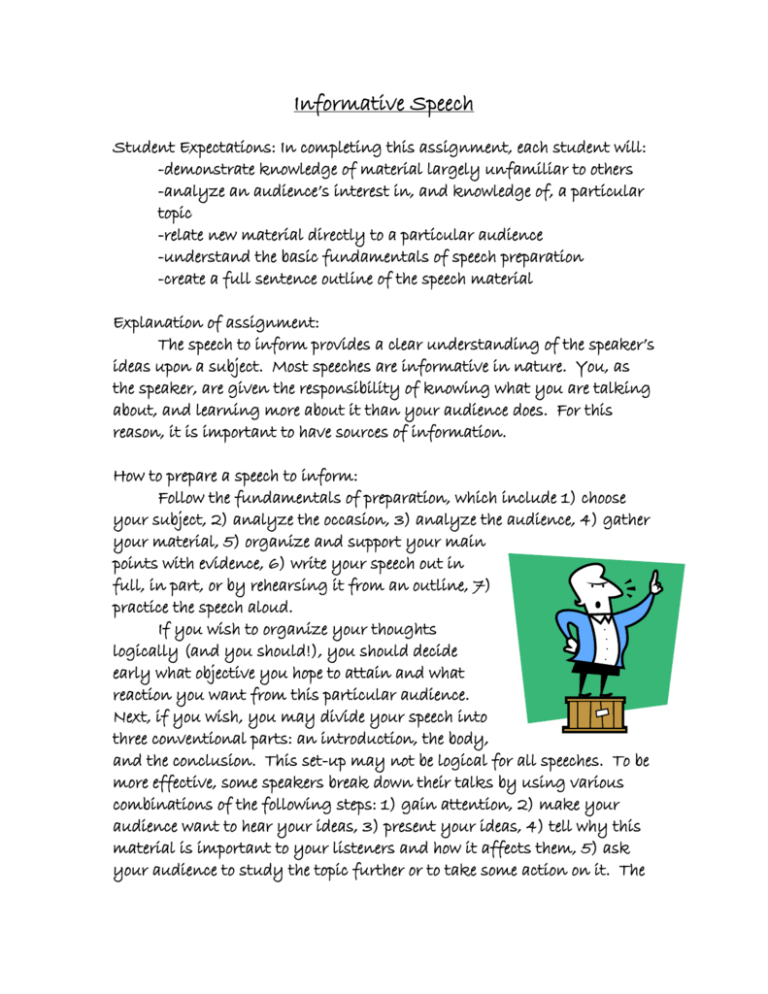
Informative Speech Student Expectations: In completing this assignment, each student will: -demonstrate knowledge of material largely unfamiliar to others -analyze an audience’s interest in, and knowledge of, a particular topic -relate new material directly to a particular audience -understand the basic fundamentals of speech preparation -create a full sentence outline of the speech material Explanation of assignment: The speech to inform provides a clear understanding of the speaker’s ideas upon a subject. Most speeches are informative in nature. You, as the speaker, are given the responsibility of knowing what you are talking about, and learning more about it than your audience does. For this reason, it is important to have sources of information. How to prepare a speech to inform: Follow the fundamentals of preparation, which include 1) choose your subject, 2) analyze the occasion, 3) analyze the audience, 4) gather your material, 5) organize and support your main points with evidence, 6) write your speech out in full, in part, or by rehearsing it from an outline, 7) practice the speech aloud. If you wish to organize your thoughts logically (and you should!), you should decide early what objective you hope to attain and what reaction you want from this particular audience. Next, if you wish, you may divide your speech into three conventional parts: an introduction, the body, and the conclusion. This set-up may not be logical for all speeches. To be more effective, some speakers break down their talks by using various combinations of the following steps: 1) gain attention, 2) make your audience want to hear your ideas, 3) present your ideas, 4) tell why this material is important to your listeners and how it affects them, 5) ask your audience to study the topic further or to take some action on it. The time required for any one division of a speech varies greatly; however, more time is given to the presentation of ideas than any other division of the speech. The wording of your talk may be accomplished either by writing it out in full from the outline, or by considerable practice. In any event, rehearse before a mirror or with a tape recorder as many times as necessary to fix the proper steps and the order of their content, along with desirable stage presence. How to use notes is somewhat a matter of opinion. If you are adequately prepared, you will not need notes. If you do use notes, they should be brief, concise, meaningful, and entirely familiar. A glance at your notes should be sufficient for you to gather their full meaning so that you make speak fluently yet logically. The information you present must be accurate. For accuracy of information, acceptable sources of information written by reliable and competent authorities must be consulted. Your audience should know where you got your material. What is more, you are the person to identify these sources and authorities. The following are a few hints for when you are writing your speech. First, have only two or three main points to your speech. Support these well with examples, illustrations, analogies and facts. Second, do not be afraid to inject humor and anecdotes into your thoughts to add interest. Be sure these additions are suited to your subject and audience. Third, be sure your speech moves ahead. Do not allow the speech to drag on. Last, give plenty of effort toward an interesting introduction and an equally effective conclusion.



